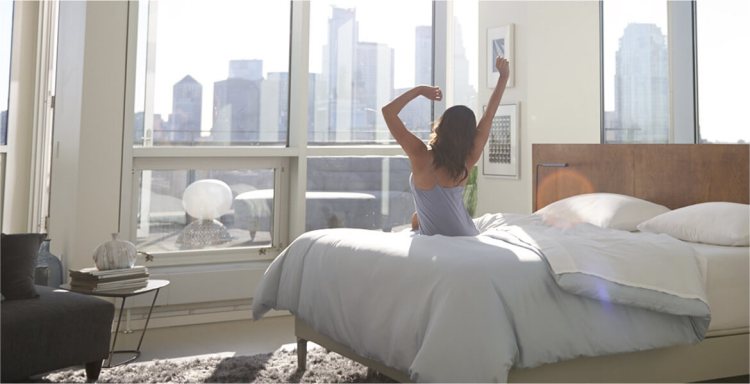A mattress might be the last thing you’d dream of applying machine learning to, but your bed is where you spend a third of your life. And if it can help you sleep better, that could improve the hours of the day when you’re not sleeping, as well.
Now, there’s a bed that promises to do some of the thinking for us to streamline our sleep time.
At CES 2017, as I plopped myself down on the Sleep Number 360 smart bed, I wanted to find out: Can AI really us sleep better? Sure, it was conformable, and, yes, I looked ridiculous, but it’s all for science.
As you may know, some so-called smart beds are not that smart. Some use an app that connects to the bed, but there’s no actual artificial intelligence involved. A company called Kingsdown does use machine learning in its Sleep Smart series to adjust to your sleep patterns, mostly by using air to reposition the mattress as you sleep. There’s also an app you use to set your preferences, but the bed can “learn” what works best for you over time.
What I liked about the Sleep Number 360 is that there’s no need for an app. I’ve been mentioning this for a while now, but my view of AI is that it should benefit us without getting in the way. Life should be easier with AI, and we shouldn’t have to “teach” a robot anything. Early speech recognition systems forced us to speak several phrases so the bot could adapt to us. Those days are obviously long gone, considering Amazon Alexa and others don’t need that kind of coaching.
The bed knows when you sleep. There’s a foot warmer at the end of the bed, and because the AI watches your sleep patterns, the heat can turn on and be at an optimal temp before you ever pull the covers back. In terms of the firmness, there’s a new tech called Responsive Air that adjusts to how you sleep (based on your preferred firmness setting).
If you snore, the bed can raise your head slightly before the snoring becomes a problem. What’s amazing is that the AI, according to company reps, can detect when you will snore or might snore and make the adjustments beforehand, saving a lot of snooze time for anyone else in the room.
Sleep tech is becoming more of a hot market these days, because we know a lot more about brain science. Your sleep cycles can determine your mood and even your success during the day, and can impact your health. I’m not sure we need a ton of AI in a bed — as long as it is soft and we can sleep on it. Yet if the bed does all of the work and all we have to do is lie down, it’s a good example of AI that helps us rather than getting in the way or (the big worry) thinking for us and making us feel like we don’t have control over our decisions.
There’s no word from Sleep Number about exactly when the bed will be available. As far as price, the only note I’ve seen is that the cost will be similar to models currently on the market. Still, if you need help sleeping, or your snoring is a problem for someone else, this could be a good investment.


